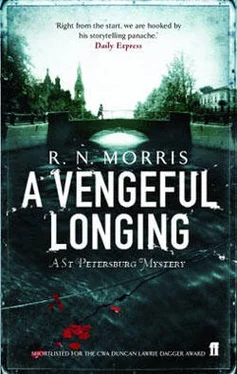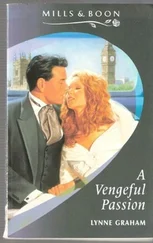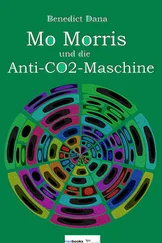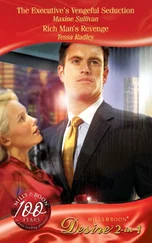R. Morris - A Vengeful Longing
Здесь есть возможность читать онлайн «R. Morris - A Vengeful Longing» весь текст электронной книги совершенно бесплатно (целиком полную версию без сокращений). В некоторых случаях можно слушать аудио, скачать через торрент в формате fb2 и присутствует краткое содержание. Год выпуска: 2008, ISBN: 2008, Издательство: Faber & Faber, Limited, Жанр: Исторический детектив, на английском языке. Описание произведения, (предисловие) а так же отзывы посетителей доступны на портале библиотеки ЛибКат.
- Название:A Vengeful Longing
- Автор:
- Издательство:Faber & Faber, Limited
- Жанр:
- Год:2008
- ISBN:9780571232536
- Рейтинг книги:3 / 5. Голосов: 1
-
Избранное:Добавить в избранное
- Отзывы:
-
Ваша оценка:
- 60
- 1
- 2
- 3
- 4
- 5
A Vengeful Longing: краткое содержание, описание и аннотация
Предлагаем к чтению аннотацию, описание, краткое содержание или предисловие (зависит от того, что написал сам автор книги «A Vengeful Longing»). Если вы не нашли необходимую информацию о книге — напишите в комментариях, мы постараемся отыскать её.
A Vengeful Longing — читать онлайн бесплатно полную книгу (весь текст) целиком
Ниже представлен текст книги, разбитый по страницам. Система сохранения места последней прочитанной страницы, позволяет с удобством читать онлайн бесплатно книгу «A Vengeful Longing», без необходимости каждый раз заново искать на чём Вы остановились. Поставьте закладку, и сможете в любой момент перейти на страницу, на которой закончили чтение.
Интервал:
Закладка:
‘I am Porfiry Petrovich, investigating magistrate from the Department of the Investigation of Criminal Causes.’ Porfiry did not look directly at the man as he made this announcement, almost as if he could not bear to. ‘You will please let us in.’
‘I can’t do that,’ said the gatekeeper with a sly smile. ‘I don’t have the key.’
‘Then kindly fetch the key.’
‘Do you think they will trust me with it?’ The man leered. ‘Look!’ He lifted his shirt, revealing a striped uniform, equally grubby, underneath. ‘They think it looks better if they dress me in a kosovorotka .’
‘I see. Is there someone you can notify of our presence who would be authorised to admit us?’
‘That would be Dr Zverkov.’
‘Very well. Please inform Dr Zverkov that magistrates from St Petersburg are here to see him.’
It was a moment before the gatekeeper descended from his stool, a moment in which he kept his eyes fixed firmly on Porfiry. Only with reluctance did he finally turn away from the magistrate. Then, unexpectedly, he broke into a run which carried him across the burdock-infested grounds towards the main house, a central two-storey block winged by long single-storey extensions.
‘Is this a hospital or a prison?’ said Virginsky.
‘Something of both,’ answered Porfiry. He looked at the long weeds growing through the wires of the old bedstead. ‘A place of abandonment,’ he added.
‘And they have set one of the inmates to guard it,’ said Virginsky.
Now a plump and florid-faced man was striding towards them, at the same time fastening on a black frock coat. He wore his beard neatly trimmed and they could see where the stiff collar of his shirt had rubbed his neck raw. His face wrinkled distastefully as he passed the strewn rubbish, as if it had long been on his mind to do something about it. The gatekeeper followed at some distance, his head averted in a kind of flinch.
The plump man took a key from his pocket and unlocked the chain that bound the gate. ‘Gentlemen, welcome to the Ulyanka Asylum. I am Dr Zverkov. How may I assist you?’ His voice was a feeble, high tenor, at odds with his bulk.
Porfiry saw that Dr Zverkov’s face was bathed in sweat as he pushed the creaking gate open.
‘You admitted an inmate yesterday, one Gorshkov, a factory worker.’
‘Ah yes, there was an admission yesterday. That is correct.’
‘We wish to speak to him.’
‘You won’t get much sense out of him,’ said Dr Zverkov, squaring up to Porfiry as if to block his way, despite the fact that he had gone to the trouble of opening the gate for him. He manufactured a thin smile, but his eyes were hostile, the set of his body pugnacious. ‘He was raving when we admitted him and he’s raving now.’
‘Of course,’ said Porfiry. ‘Nevertheless.’
‘What has he done?’ asked the gatekeeper from behind Dr Zverkov.
‘Be quiet, Nikita,’ snapped the doctor. However, he narrowed his eyes as he looked at Porfiry, as if waiting for an answer to the question.
Porfiry said nothing.
Dr Zverkov at last stepped aside and waved in the two magistrates. He then closed and re-chained the gate.
‘Follow me, please.’ He led the way briskly towards the right-hand wing. Porfiry could see that the fabric of the building was by no means as pristine as it had seemed from a distance, when the sun had coated it with a sheen that evened out all imperfections. The cracks and stains in the stucco were visible now. He could also see that the windows were barred. ‘Back to your post, Nikita,’ Dr Zverkov commanded irritably, as if seeking to distract from the shabbiness. He too, it seemed, could not bear to look at the man when he addressed him. ‘As magistrates, you will be used to dealingwith the criminally insane.’ He angled his head back towards Porfiry and Virginsky, who were in step behind him. ‘It will not surprise you that we have had to restrain him.’
‘Why do you say that he is criminally insane?’ asked Virginsky sharply. ‘What crime has he committed?’
‘He menaced his cohabitants, including his wife, with a knife. And then attempted to murder himself. Suicide is a crime, I believe, as well as being against the laws of God and nature. Anyone attempting suicide is by definition insane.’
‘You are aware of the background to his case? The loss of his children?’ Virginsky insisted.
‘Of course. However, such suffering is by no means unique. Many people suffer far worse and do not become violent. We must find a way to overcome our sufferings, not be overcome by them. That is the rational way. When you consider the age of the earth, and the many ages of man, what really do the sorrows of one lifetime amount to? The Romans, I think, had the right attitude.’
‘You are talking of the Stoics? It is hard for a parent who has lost six children to be stoical, I think.’ Virginsky cast a glance towards Porfiry, soliciting his support.
‘Is this how you treat your patients, by reasoning with them?’ said Porfiry with a smile.
‘Of course not. One cannot reason with the mad.’ Dr Zverkov turned sharply into an arched passageway that led through the wing of the building into an inner courtyard. The same long weeds grew unchallenged here. The air thickened with that summer courtyard stench, which here, somehow, made Porfiry think of captive beasts. They crossed the courtyard and followed Dr Zverkov through a door, inevitably arched, into an utterly dilapidated annexe. A man in striped uniform, the same as Nikita had worn beneath his kosovorotka , was sitting on a chair smoking a pipe. Behind him, an open doorway led to a ward.
Dr Zverkov turned to Porfiry and Virginsky. ‘Gorshkov is in there.’
The animal smell intensified as they entered the ward. There were six or so men, of different ages and physical types. Most seemed to be of the artisan class and all wore grubby dressing gowns, but no trousers or shoes.
A number of men shuffled about the ward. All seemed melancholic rather than raving. They did not meet each other’s eyes, or acknowledge anyone else’s existence in any way. A couple of them mouthed, or muttered, their grievances to themselves.
One man seemed to hold himself apart. He was sitting on his bed reading. He looked up when Porfiry and Virginsky came into the ward. He seemed to make a decision in that instant and rose from his bed, approaching Virginsky without hesitation. He spoke in a soft, educated voice and looked Virginsky in the eye naturally and easily, without either condescension or insolence; as an equal, in other words. ‘I should not be here, you know,’ he began calmly. ‘I’m not mad at all. There has been a terrible mistake. It was my mistake, I admit that. I was in error. I have said as much. I have begged forgiveness. I have placed myself at the mercy of the Tsar. I wrote a letter, you see, in which were stated certain opinions. It was not meant for public circulation. However, it fell into the hands of a certain journalist. “Dynamite”, he described it as. And I suppose I was flattered by the importance he attached to it. I am a weak, vain man, but I am not mad. He urged me to publish it. He promised me help in doing so. He said that my friends would protect me. I have friends in the very highest circles. That was why he believed the letter was so explosive. My social standing, my background, my position — I was a professor at the university. He said — the journalist, and I believed him — that the Tsar would read my words in the spirit in which they were intended; that he would understand my patriotic intentions. I am a noble, I will make no bones about that. I am not like the other men here. These men are all factory workers or former serfs. I do not belong here at all.’ The professor looked into Virginsky’s eyes, searching for hope. His face suddenly clouded. ‘However, he was wrong. I was wrong. I made a mistake. I misjudged the mood at court. I went too far. Of course, I confined myself to generalities. I made no specific criticisms. However, I made the mistake, the terrible mistake, of suggesting that Russia, our Russia, is a backward country. That there are further improvements the Tsar could make, in the name of humanity. Yes, to that extent, in as much as it is true that I did write such things, it is true — it can only be true — that they are evidence of a temporary insanity. But I have recanted. I have admitted I was in error. Therefore, the insanity has passed — it can fairly be said to have passed. You see that, don’t you? You are an intelligent young man. Surely you can see that?’
Читать дальшеИнтервал:
Закладка:
Похожие книги на «A Vengeful Longing»
Представляем Вашему вниманию похожие книги на «A Vengeful Longing» списком для выбора. Мы отобрали схожую по названию и смыслу литературу в надежде предоставить читателям больше вариантов отыскать новые, интересные, ещё непрочитанные произведения.
Обсуждение, отзывы о книге «A Vengeful Longing» и просто собственные мнения читателей. Оставьте ваши комментарии, напишите, что Вы думаете о произведении, его смысле или главных героях. Укажите что конкретно понравилось, а что нет, и почему Вы так считаете.












